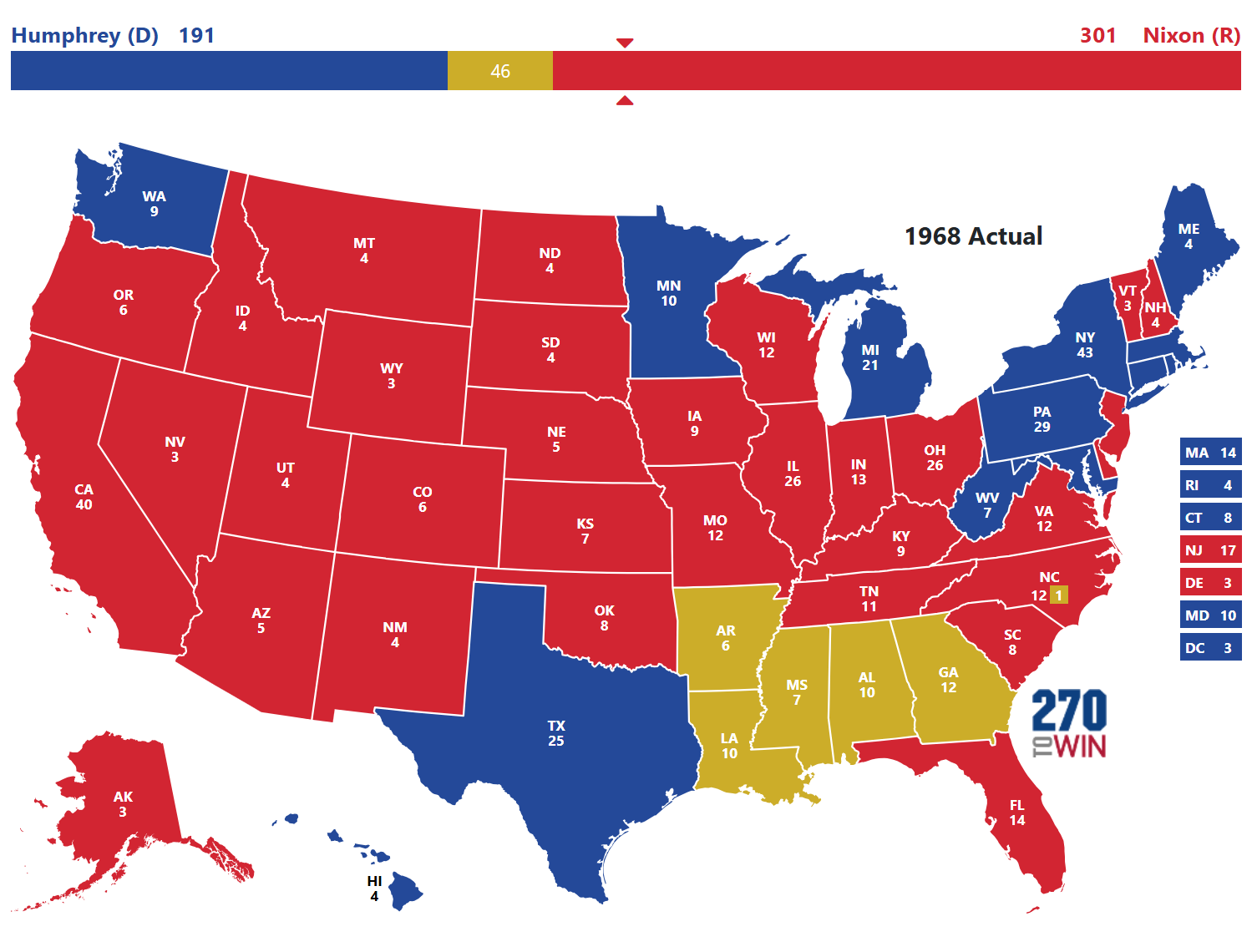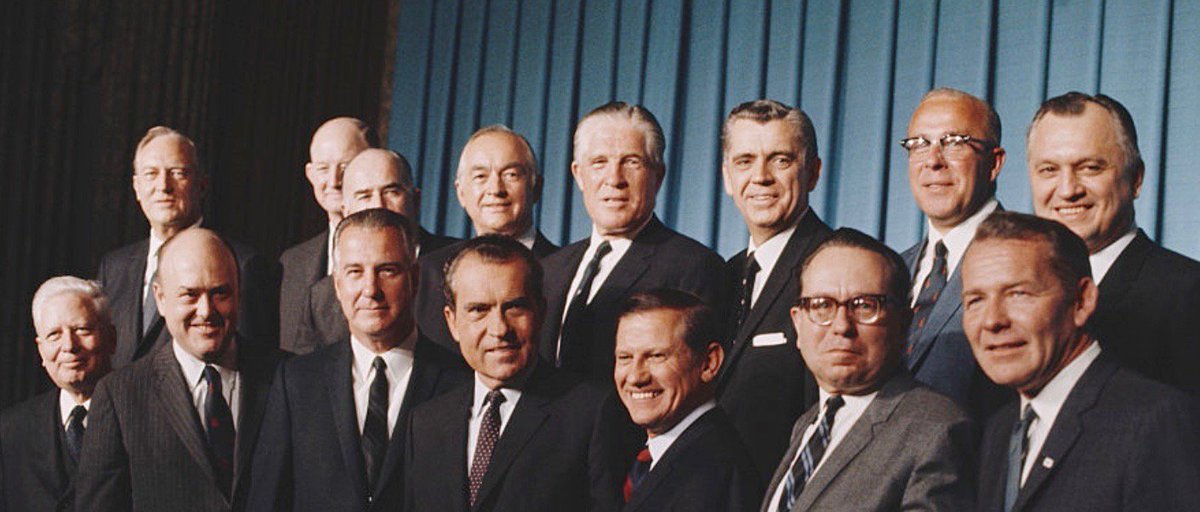Popular vote by state
Alternative scenarios
Vote by groups (enlarged view)
The HOUSE VOTED TO ABOLISH THE ELECTORAL COLLEGE
Nixon supported the idea. Repeat, Nixon supported it.
No one subject more profoundly involves the issue of popular sovereignty than the method of electing the President. For almost two centuries the system of the Electoral College has somehow worked, albeit just barely at times, and at other times even doubtfully. Every four years the American democracy places a large, unacceptable, and unnecessary wager that it will work one more time, that somehow an institution that never in any event functioned the way the framers of the Constitution anticipated, will somehow confer the Presidency on that candidate who obtains the largest number of votes. The Electoral College need not do so. Indeed on occasion it has not done so. But far more importantly--whatever the popular vote--it need not confer the Presidency on any candidate, if none has a majority of the electoral vote.
Our ability to change this system in time for the 1972 elections is a touchstone of the impulse to reform in America today. It will be the measure of our ability to avert calamity by anticipating it.
As I stated in my October 1969 message, I originally favored other methods of reforming the electoral college system, but the passage by the House of a direct popular election plan indicated that this thoroughly acceptable reform could be achieved, and I accordingly supported it. Unfortunately, the Senate has not completed action. Time is running out. But it is still possible to pass the measure and to amend the Constitution in time for the 1972 elections.

Nixon cabinet
Notice something about the demographics?

Last month was the 50th anniversary of Nixon inaugural
The inaugural address:
No comments:
Post a Comment